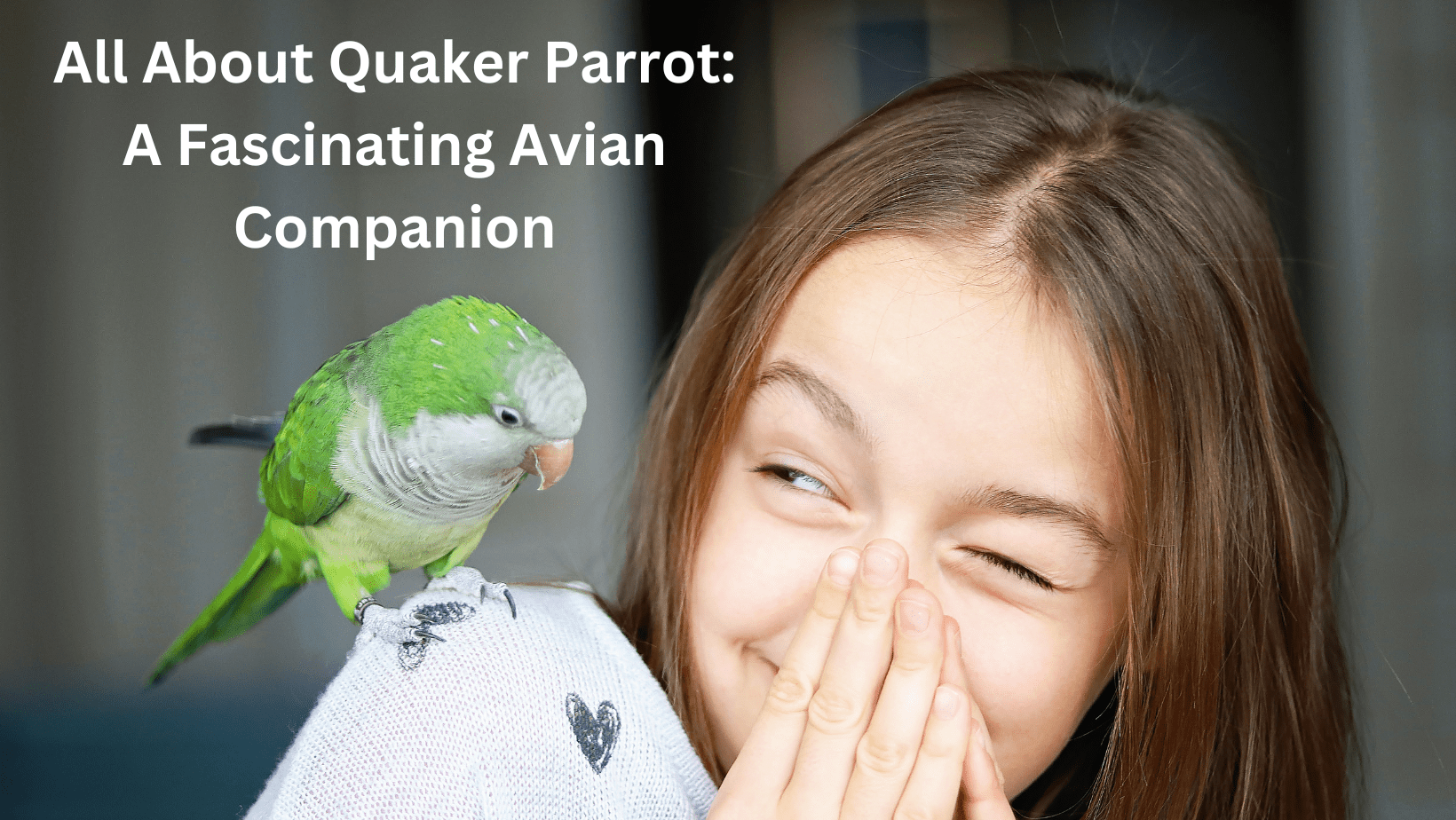Introduction
If you’re curious about the colorful and intelligent world of parrots, you’ve come to the right place. Quaker Parrots, also known as Monk Parakeets, are captivating birds that have become beloved pets worldwide. In this comprehensive guide, we’ll delve into the origin, dietary preferences, breeding age, and much more, while keeping it engaging and easy to understand. So, let’s take a flight into the wonderful realm of Quaker Parrots!
The Origin of Quaker Parrots
The Quaker Parrot, scientifically known as Myiopsitta monachus, is native to South America, particularly in countries like Argentina, Brazil, and Uruguay. These social birds are often found in large flocks in their natural habitat, and their adaptability has allowed them to thrive in various regions worldwide.
Quaker Parrot Characteristics
A Quaker Parrot’s Appearance
Quaker Parrots are small to medium-sized parrots, measuring about 11-13 inches in length. Their plumage is primarily bright green, with a gray face and forehead. These birds have striking blue flight feathers on their wings and a distinctive tail. One remarkable feature is their bright orange beak.
Personality and Temperament
Quaker Parrots are renowned for their charming personalities. They are inquisitive, playful, and often described as “clowns” due to their amusing antics. These birds are highly social and enjoy human interaction, making them wonderful companions.
The Quaker Parrot’s Unique Color
Quaker Parrots exhibit sexual dimorphism, which means you can distinguish males from females by their plumage colors. Males typically have brighter blue feathers on their chest, while females have lighter, pale-blue feathers.
Diet and Nutrition
What Quaker Parrots Eat
Quaker Parrots have an eclectic diet that includes a variety of fruits, vegetables, seeds, and nuts. A balanced diet is essential to their health and well-being. Offer them fresh produce like apples, carrots, and leafy greens alongside a mix of seeds and pellets. For more info on homemade food for Quaker…..
Water and Hydration
Ensure that your Quaker Parrot has access to clean, fresh water at all times. Hydration is critical to their overall wellness.
Breeding Age and Mating Rituals
Maturity and Breeding
Quaker Parrots typically reach sexual maturity at around 1 to 2 years of age. Breeding pairs engage in elaborate courtship rituals, which often involve mutual preening and feeding.
Nesting and Offspring
Once a pair successfully mates, they build intricate nests. The female lays eggs, which hatch into adorable chicks after about 24-28 days of incubation. The parents share the responsibility of feeding and nurturing their young.
Caring for Your Quaker Parrot
Housing and Environment
When keeping a Quaker Parrot as a pet, it’s essential to provide them with a spacious and stimulating environment. A sturdy cage with plenty of toys and perches is ideal.
Social Interaction
Quaker Parrots thrive on social interaction, so be sure to spend quality time with your feathery friend daily. They enjoy chatting, playing, and being included in your daily activities.
Common Health Concerns
Avian Vet Visits
Regular visits to an avian veterinarian are essential to monitor your Quaker Parrot’s health. These check-ups help catch potential issues early and ensure your bird’s well-being.
Potential Health Problems
Common health concerns in Quaker Parrots include obesity, feather plucking, and respiratory issues. A well-balanced diet, regular exercise, and a clean environment can prevent many of these problems.
Communication and Social Behavior
Vocal Abilities
Quaker Parrots are renowned for their vocal talents. They can mimic sounds, words, and even phrases, making them exceptional talkers.
Social Behavior
These birds are incredibly social, forming strong bonds with their human companions. They appreciate being a part of the family and flourish in a caring and engaged setting.
Quaker Parrots as Pets
Why Quaker Parrots Make Great Pets
Quaker Parrots are popular as pets due to their affectionate nature and entertaining personalities. They can form deep bonds with their owners, providing companionship and amusement.
Legal Considerations
Before getting a Quaker Parrot, it’s essential to check local regulations, as they are illegal to keep as pets in some regions due to their potential impact on the environment.
The Quaker Parrot Community
Quaker Parrot Enthusiasts
The Quaker Parrot community is a passionate group of bird lovers who share their experiences and knowledge online and through local clubs. Connecting with this community can be a valuable resource for new Quaker Parrot owners.
Conclusion: Your Feathered Friend
In conclusion, Quaker Parrots are remarkable avian companions known for their charm, intelligence, and vibrant personalities. These birds have a rich history and a bright future as cherished pets. By providing them with a loving home and proper care, you can enjoy the delightful company of a Quaker Parrot for many years.
FAQ: Frequently Asked Questions
1. Are Quaker Parrots good for first-time bird owners?
Yes, Quaker Parrots can be excellent choices for first-time bird owners. They are great for novices due to their amiable demeanor and versatility.
2. What should I feed my Quaker Parrot?
Offer your Quaker Parrot a balanced diet consisting of fresh fruits, vegetables, seeds, and pellets. Consult with a veterinarian for specific dietary recommendations.
3. Can Quaker Parrots talk?
Absolutely! Quaker Parrots are known for their impressive vocal abilities and can learn to mimic words and sounds.
4. Do Quaker Parrots require a lot of attention?
Quaker Parrots thrive on social interaction and attention. Be prepared to spend quality time with your feathered friend daily.
5. Are Quaker Parrots noisy?
While Quaker Parrots are known for their vocal talents, their noise level is moderate compared to some other parrot species. They can be lively, but their sounds are generally manageable with proper training and socialization.
In this article, we’ve covered all the essentials about Quaker Parrots, from their origins to their role as delightful pets. Whether you’re a prospective Quaker Parrot owner or simply curious about these charming birds,
